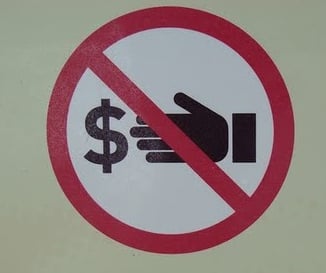Penn National Eschewing Asia to Avoid US Regulatory Scrutiny
Posted on: November 22, 2013, 05:30h.
Last updated on: November 20, 2013, 05:44h.

No matter how regulated or legalized, some aspects of the gambling industry just cannot be avoided. And what may have moved into the more politically correct realms of lobbyist lunches and VIP hosting in the U.S., remains more of an open handout in Asia, where politicians and mafia dons alike expect – and apparently often receive – out-and-out mammoth cash sums for their “help” in getting billion-dollar U.S. casino projects off the ground.
Accepted in Asia, But in U.S., Not So Much
But the double-edged sword of this backroom, if quietly accepted practice, is that it can come up to haunt these same U.S. casino operators when they come in front of their own country’s regulators for licensing. Wynn Resorts and Caesars Entertainment have both been subjected to this phenomenon recently while attempting to land such licensing in Massachusetts (Caesars withdrew an application ultimately in disgust), and while we are certainly not, cough, saying anyone has actually done anything like this in Asia to get ‘er done, the perception and allegations are there and noted by regulators nonetheless.
It is for this reason that expanding regional U.S. casino giant Penn National Gaming has made the decision to avoid moving into the certainly very lucrative Asian market – eschewing the massive financial possibilities of countries like Macau and Singapore – perhaps having seen the price paid by their gaming industry brethren for having done so of late.
In fact, Penn National Chairman Peter Carlino told the Baron Investment Conference earlier this month that his company had actually explored expansion into an unnamed Asian country, but had moved quickly away from the idea when he learned that his also unnamed designated partner in the venture had actually made budget allowances for border guard payoffs.
Feds Taking Notes (Not That Kind)
Carlino noted that intense scrutiny of late by both the U.S. Department of Justice and the New York Stock Exchange’s regulatory master, the Securities and Exchange Commission (SEC), were creating very strict enforcement of the Foreign Corrupt Practices Act, a law that basically states that payola in foreign countries is a no-no. Carlino added that it’s made many in the U.S. gaming market more squeamish about investing in other countries where the concepts of payoffs are as accepted and normalized as a meeting with a lobbyist would be here.
“There’s a little bit of overzealousness in this,” Carlino noted. “Those are limitations that American companies face that others don’t.”
What a conundrum for U.S. gaming companies: wrestling with getting on the Asian casino gravy train, or risking fines or worse for the same by American regulators. Not only has Wynn Resorts’ $135 million “donation” to the University of Macau Development Foundation in 2011 been under the microscope by the Feds; so too has Sheldon Adelson’s Las Vegas Sands Corporation’s alleged under – or over – the table payments in Macau to this, that and the other guy.
In an industry that not long ago was frankly run by the Mob in the U.S., this squeaky-clean standard is putting American operators at a disadvantage, and Carlino earned audience guffaws from his Baron’s investment crowd when he noted that Penn would be all in “if that’s the game,” but that Washington and state regulators don’t seem to get it.
Penn currently operates 29 casinos and racetracks located in 19 U.S. states and also in Ontario, Canada. The company recently spun off 21 of their casino holdings – including the M Resort and Casino on Las Vegas’ South Strip – into Gaming and Leisure Properties, which they created as a publicly traded real estate investment trust.
Wall Street experts predict the new company will invest close to $500 million in 2014 on new acquisitions, with an eye towards smaller regional operator buyouts.